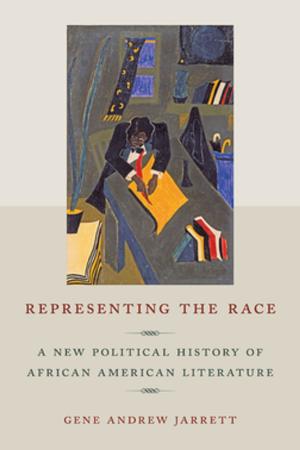Dance Hall Days
Intimacy and Leisure Among Working-Class Immigrants in the United States
Nonfiction, Social & Cultural Studies, Social Science, Gender Studies, Women&| Author: | Randy McBee | ISBN: | 9780814761199 |
| Publisher: | NYU Press | Publication: | November 1, 2000 |
| Imprint: | NYU Press | Language: | English |
| Author: | Randy McBee |
| ISBN: | 9780814761199 |
| Publisher: | NYU Press |
| Publication: | November 1, 2000 |
| Imprint: | NYU Press |
| Language: | English |
The rise of commercialized leisure coincided with the arrival of millions of immigrants to America's cities. Conflict was inevitable as older generations attempted to preserve their traditions, values, and ethnic identities, while the young sought out the cheap amusements and sexual freedom which the urban landscape offered. At immigrant picnics, social clubs, and urban dance halls, Randy McBee discovers distinct and highly contested gender lines, proving that the battle between the ages was also one between the sexes.
Free from their parents and their strict rules governing sexual conduct, working women took advantage of their time in dance halls to challenge conventional gender norms. They routinely passed certain men over for dances, refused escorts home, and embraced the sensual and physical side of dance to further accentuate their superior skills and ability on the dance floor. Most men felt threatened by women's displays of empowerment and took steps to thwart the changes taking place. Accustomed to street corners, poolrooms, saloons, and other all-male get-togethers, working men tried to transform the dance hall into something that resembled these familiar hangouts.
McBee also finds that men frequently abandoned the commercial dance hall for their own clubs, set up in the basements of tenement flats. In these hangouts, working men established rules governing intimacy and leisure that allowed them to regulate the behavior of the women who attended club events. The collective manner in which they behaved not only affected the organization of commercial leisure but also men and women's struggles with and against one another to define the meaning of leisure, sexuality, intimacy, and even masculinity.
The rise of commercialized leisure coincided with the arrival of millions of immigrants to America's cities. Conflict was inevitable as older generations attempted to preserve their traditions, values, and ethnic identities, while the young sought out the cheap amusements and sexual freedom which the urban landscape offered. At immigrant picnics, social clubs, and urban dance halls, Randy McBee discovers distinct and highly contested gender lines, proving that the battle between the ages was also one between the sexes.
Free from their parents and their strict rules governing sexual conduct, working women took advantage of their time in dance halls to challenge conventional gender norms. They routinely passed certain men over for dances, refused escorts home, and embraced the sensual and physical side of dance to further accentuate their superior skills and ability on the dance floor. Most men felt threatened by women's displays of empowerment and took steps to thwart the changes taking place. Accustomed to street corners, poolrooms, saloons, and other all-male get-togethers, working men tried to transform the dance hall into something that resembled these familiar hangouts.
McBee also finds that men frequently abandoned the commercial dance hall for their own clubs, set up in the basements of tenement flats. In these hangouts, working men established rules governing intimacy and leisure that allowed them to regulate the behavior of the women who attended club events. The collective manner in which they behaved not only affected the organization of commercial leisure but also men and women's struggles with and against one another to define the meaning of leisure, sexuality, intimacy, and even masculinity.















